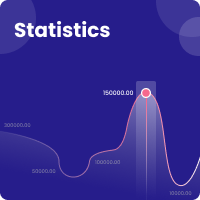Swebok standard application to the systems engineering curriculum design
Abstract
This paper addresses the identification of academic competences for a Software Engineering Program. The definition of the curriculum is important to meet the training needs of future professionals so that they acquire the competences that the social, business and industry fields are requiring. According to this purpose, we aim at proposing the professional profile and social relevance, based on the needs of the global environment. In this context, we review international standards for creating lesson plans and curricula of colleges of high standing. Having defined the right professional skills in tune with the social relevance, the profile and finally the curriculum structure which integrates and articulates the different academic competences are established.References
Abrahan, T., Beath, C., Bullen, C., Gallagher, K., Goles, T. H., Kaiser, K., y otros. (2006). IT Workforce Trend: Implication for IS programs.
Acofi. (2004). Contenidos programáticos básicos para ingeniería. Opciones Gráficas Editores Ltda., Volumen 1.
Acofi. (2009). Avances del capítulo Acofi de Ingeniería de Sistemas y programas afines. Carta de informe para la reunión de capítulos en Santa Marta.
Acofi, e Icfes. (1996). Actualización y modernización curricular en ingeniería de sistemas. En: Alcaldia de Medellín. Plan de Desarrollo 2012-2015, 2012. [En línea]. Available: http://www.elplanmedellin.com/.
Barrera, L. (2010). Los retos en la formación del Ingeniero de Sistemas. I Encuentro Nacional de Ingeniería de Sistemas. Paipa, Boyacá.
Departamento Nacional de Planeación (DNP), Plan Nacional de Desarrollo 2010-2014. [En línea]. Available: http://www.dnp.gov.co/PND/PND20102014.aspx. [Último acceso: 07 07 2012]
Guerrero, D. A. (2007). Estrategias didácticas para la ingenería del software a partir del proyecto Swebook. Tecnológicas, (18), 185-224.
Guerrero, D. A., Anaya, R., y Trujillo, J. (2010). Enseñanza y aprendizaje del modelado de software a través dejuegos serios. Caso: Diagramas de Interacción. Tesis. T005.12CDG934. Medellin, Antioquia, Colombia: Biblioteca Universidad Eafit.
IEEE (2004). Curriculum guidelines for undergraduate degree programs in computer engineering. IEEE Computer Society.
IEEE Computer Society (2008). Computer Science Curriculum 2008. An Interim Revision of CS 2001.
Instituto Tecnológico Metropolitano -ITM. (02 de 10 de 2010). www.itm.edu.co. Recuperado el 02 de 02 de 2011, de http://itm.edu.co/facultaddeingenierías/programas_académicos.
Ministerio de Educación Nacional MEN, Plan Nacional Decenal de Educación PNDE 2006-2016, 2006. [En línea]. Available: http://www.plandecenal.edu.co/html/1726/w3-channel.html.
Meyer, y Bunge, M. (2004). Panorama de la industria del software en Latinoamérica. Informática Ltda. Brasil.
Parra, E. (2010). Las ciencias básicas en Ingeniería de Sistemas: justificaciones gnoseológicas desde los objetos de estudio y de conocimiento. Revista educación en Ingeniería. N 10: http://www.Acofi.edu.co/revista/Revista10/2010_II_36.pdf.
Red Colombiana de Programas de Ingeniería de Sistemas y Afines -Redis ( 2011). La identidad del Ingeniero de sistemas. II Encuentro Nacional de Programas de Ingeniería. San Gil, Santander, Colombia.
SWEBOK. (2004). Guide to the Software Engineering Body of Knowledge. A project of the IEEE Computer Society Professional Practices Comité. Recuperado el 18 de octubre de 2011, de www.SWEBOK.org
Urrego, M. I., Castaño, L. E. (1999). Modelo pedagógico. Medellín: Instituto Tecnológico Metropolitano.










